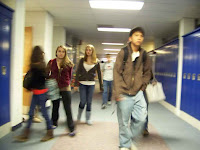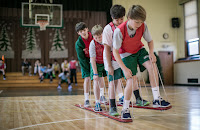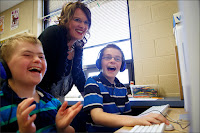How to Help Aspergers and HFA Teens Transition to High School

Young Aspergers (AS) and High-Functioning Autistic (HFA) teens entering high school look forward to having more choices and making new and more friends; however, they also are concerned about being picked on and teased by older students, having harder work, making lower grades, and getting lost in a larger, unfamiliar school. As these "special needs" teens make the transition into high school, many experience a decline in grades and attendance. They view themselves more negatively and experience an increased need for friendships. By the end of the 10th grade as many as 6% drop out of school. For middle school students, including those who have been labeled "gifted" or "high-achieving," the transition into high school can be an especially unpleasant experience. Research has found, however, that when middle school students with AS and HFA took part in a high school transition program with several diverse articulation activities, fewer students wer




